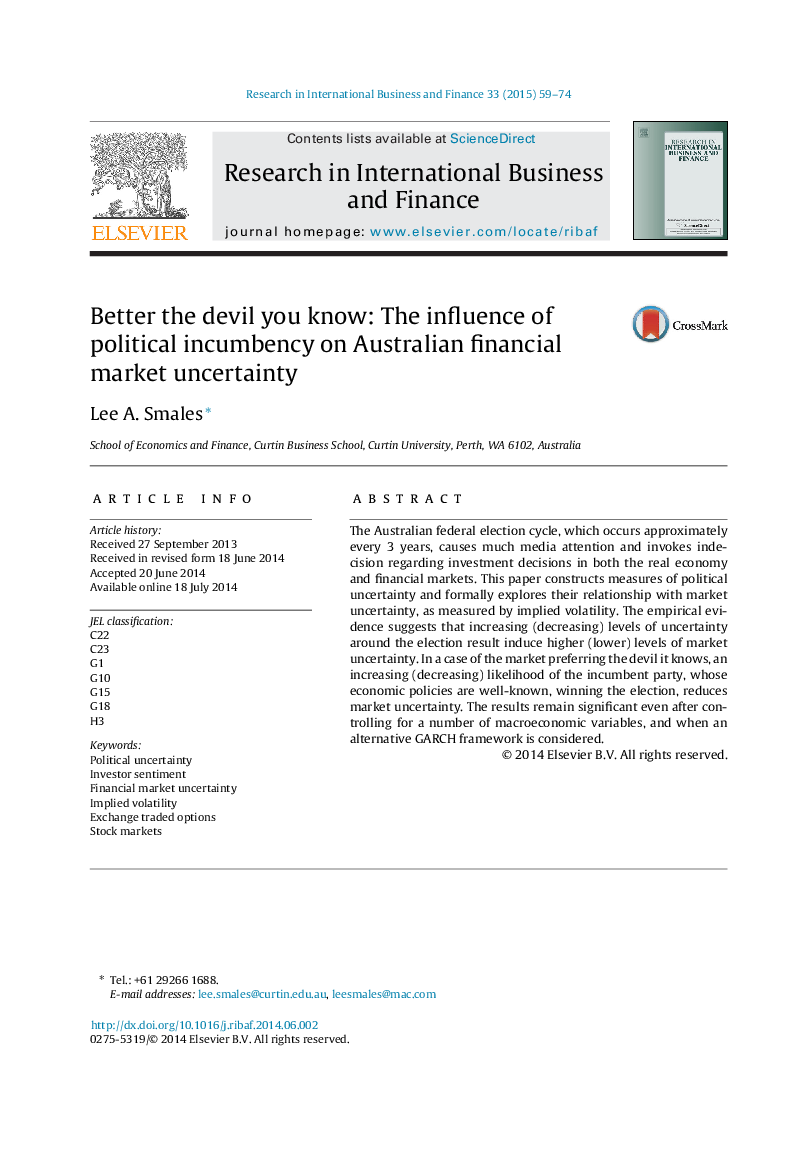| Article ID | Journal | Published Year | Pages | File Type |
|---|---|---|---|---|
| 1003550 | Research in International Business and Finance | 2015 | 16 Pages |
•Explores relationship between political and financial market uncertainty.•Construct measures of political uncertainty; implied volatility proxy of market uncertainty.•Positive relationship for political and market uncertainty near election outcome.•Increasing likelihood of the incumbent party winning reduces market uncertainty.•Results remain significant after controlling for macroeconomic situation.
The Australian federal election cycle, which occurs approximately every 3 years, causes much media attention and invokes indecision regarding investment decisions in both the real economy and financial markets. This paper constructs measures of political uncertainty and formally explores their relationship with market uncertainty, as measured by implied volatility. The empirical evidence suggests that increasing (decreasing) levels of uncertainty around the election result induce higher (lower) levels of market uncertainty. In a case of the market preferring the devil it knows, an increasing (decreasing) likelihood of the incumbent party, whose economic policies are well-known, winning the election, reduces market uncertainty. The results remain significant even after controlling for a number of macroeconomic variables, and when an alternative GARCH framework is considered.
Graphical abstractFigure optionsDownload full-size imageDownload as PowerPoint slide
